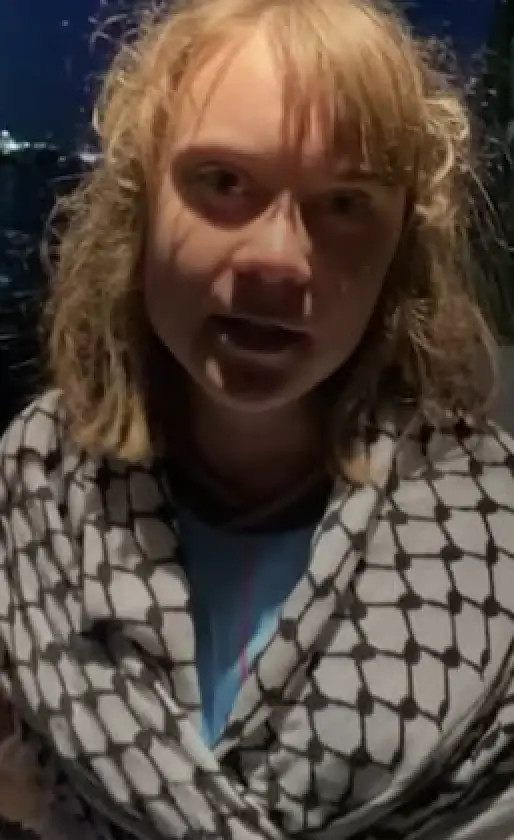Greta Thunberg and Fellow Activists Detained by Israeli Forces: Latest Developments
In a significant turn of events, Greta Thunberg, the renowned Swedish environmental activist, and eleven other activists were recently detained by Israeli authorities while attempting to deliver humanitarian aid to the Palestinian territories. The group was onboard the Madleen, a British-flagged vessel managed by the Freedom Flotilla Coalition (FFC), when they were intercepted in international waters. This incident has sparked widespread concern and prompted calls for action from around the globe, amplifying the already high tensions regarding humanitarian efforts in the region.

Details of the Incident
On June 9, 2025, the Madleen was intercepted by Israeli military forces during its mission to provide much-needed assistance to Palestinians, who have been facing significant humanitarian challenges due to ongoing conflicts and blockades. Following the interception, Thunberg released a recorded video message urgently requesting help. In her emotionally charged plea, she stated, “My name is Greta Thunberg, and I am from Sweden. If you see this video, we are being intercepted and kidnapped in international waters by the Israeli occupational forces, or forces that support Israel. I urge all my friends, family, and comrades to put pressure on the Swedish government to release me and the others as soon as possible.” This stark declaration drew immediate international attention and raised questions regarding the legality of the interception, as it occurred in international waters.

Reactions from the Israeli Government
The Israeli Foreign Ministry reacted swiftly to the situation, announcing that by the evening of June 9, Thunberg and the other detained activists had arrived in Ashdod, where they underwent medical checks to ensure their health was not compromised. Subsequently, the ministry initiated deportation proceedings for the activists. Thunberg was ultimately reported to have left Tel Aviv on a flight to France after consenting to be deported. This quick response from the Israeli authorities illustrates the tense nature of international activism, especially amid heightened geopolitical tensions in the region.
Ongoing Legal Challenges for Other Activists
While Thunberg’s departure was relatively straightforward, the situation for the other activists remains complicated and less clear-cut. Reports indicate that five out of six French nationals who were also detained have refused to sign their deportation orders, which has resulted in their case being escalated to an Israeli judicial authority. France’s Foreign Minister, Jean-Noel Barrot, confirmed that government officials were actively monitoring the situation, stating, “Our consul was able to see the six French nationals arrested by the Israeli authorities last night. One of them has agreed to leave voluntarily and should return today. The other five will be subject to forced deportation proceedings.” This unfolding legal battle further complicates the narrative, emphasizing the broader ramifications of international humanitarian efforts and the rights of activists.
International Reactions and Calls for Action
The incident has ignited a wave of international condemnation and calls for the immediate release of all activists involved. Organizations, humanitarian groups, and influential figures across the globe have voiced their outrage. The Freedom Flotilla Coalition released a statement emphasizing the unlawful nature of the interception, declaring, “We continue to demand the immediate release of all volunteers and the return of the stolen aid. Their kidnapping is unlawful and a violation of international law.” This incident raises serious questions regarding the treatment of humanitarian missions and the rights of activists advocating for global awareness of critical issues, highlighting how vulnerable humanitarian efforts can be in politically charged environments.
Humanitarian Concerns and the Role of Activism
The detention of Thunberg and her fellow activists starkly highlights the ongoing humanitarian crisis in Palestine and underscores the international community’s responsibility to respond urgently. The actions taken by the Israeli forces disrupt humanitarian efforts and serve as a reminder of the risks involved in activism, particularly when addressing contentious geopolitical issues. Activists like Thunberg have transcended their roles as environmental advocates to become symbols of a larger movement advocating for both climate justice and human rights. Their detention raises critical ethical questions regarding the right to protest and the importance of providing aid, stressing the need for international laws to protect activists.
The Broader Implications of the Incident
This incident can be viewed as more than a singular event; it reflects the broader geopolitical tensions and the ongoing struggle for human rights and environmental justice. Activists frequently find themselves at the intersection of these issues, advocating for change in environments that are often hostile to dissent. The situation also underscores the necessity for countries to protect their citizens engaged in peaceful activism abroad, ensuring that their rights are upheld regardless of political circumstances. For instance, neighboring countries witnessing such incidents may need to examine their own policies regarding peacekeeping and humanitarian efforts, to foster an environment conducive to productive dialogue.
Future Developments and Ongoing Advocacy
As the situation unfolds, it is crucial for the international community to remain vigilant and advocate for the rights of all detained activists. The calls for pressure on the Swedish and French governments reflect a collective desire for accountability and justice in the face of apparent violations of human rights. Activism, especially in the realms of humanitarian aid and climate change, is not merely a personal endeavor but a global responsibility that calls for collaboration and solidarity across borders. It serves as a salient reminder of the interconnectedness of global issues and the importance of collective action.
Conclusion
The detention of Greta Thunberg and her fellow activists serves as a stark reminder of the challenges faced by those who dare to speak up against injustice. It urges a critical reflection on the role of activism in contemporary society and the profound implications of governmental responses to peaceful protests and humanitarian missions. As we witness this situation unfold, it is essential that we rally behind those advocating for change, ensuring that their voices remain heard and that they are not silenced in their pursuit of justice and humanitarian aid. The world must come together to support these efforts and remind governments of their obligations to uphold human rights and protect those who endeavor to make a difference.

















